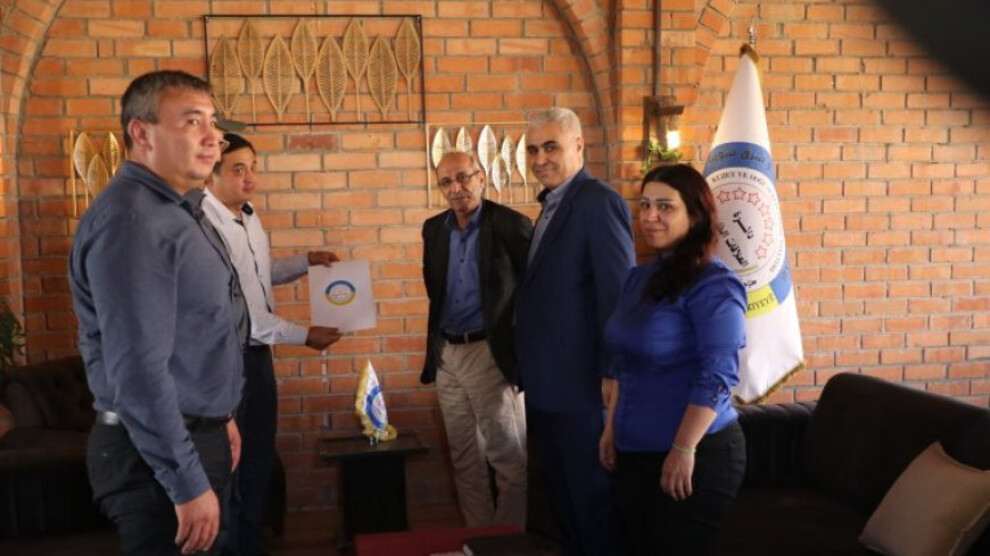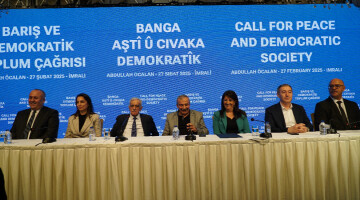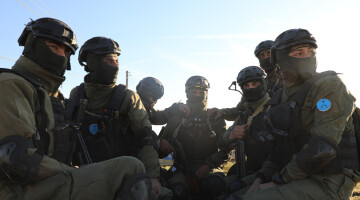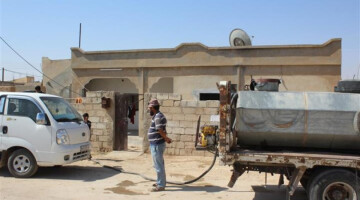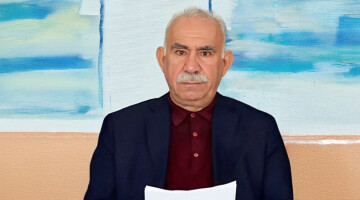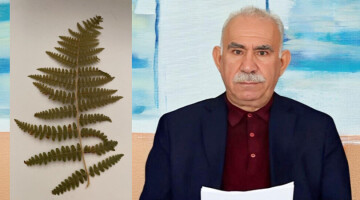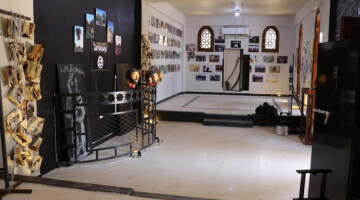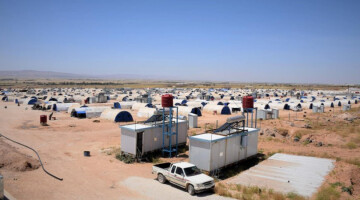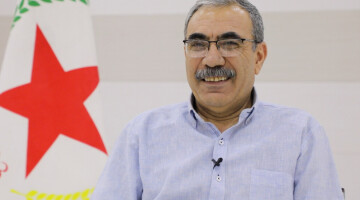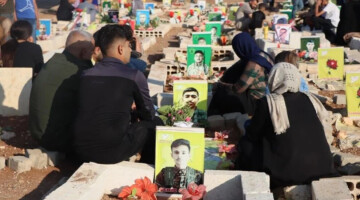The Kyrgyz government has repatriated 21 women from Northern and Eastern Syria who joined the Islamic State years ago. The Autonomous Administration (AANES) also handed over 62 children of ISIS supporters into the care of the government delegation that traveled from Bishkek and was led by Kyrgyzstan's Foreign Office diplomat Bakit Kadyrov.
According to Fanar al-Kaeet, deputy co-chair of the AANES Department of Foreign Affairs, this was the third repatriation of Kyrgyzstan nationals this year. Previously, a total of 154 women and children of ISIS were repatriated to their homeland in August and February.
The signing of the handover protocol between the AANES and Kyrgyzstan was attended by Lana Hesen, representative of the Women's Defense Units (YPJ), and Xalid Îbrahîm from the Autonomous Administration steering committee. ANHA news agency reported that during the meeting, both sides discussed relations between the AANES and the Republic of Kyrgyzstan as well as security policy aspects. Al-Kaeet focused on Turkey's attacks in the region and pointed out that Turkish military violence in recent weeks had destroyed almost all of the infrastructure in Northern and Eastern Syria.
More security in Rojava also means more security everywhere else
“The Turkish attacks not only lead to a destabilization of the region, but at the same time they also mean a strengthening of ISIS and a further escalation,” emphasized the AANES official. He criticized Turkey for fueling the war in Syria with its attacks that violate international law and exacerbating the humanitarian crisis in the country. “This political and human disaster could have been prevented. The silence of the international community has helped this to happen,” said Al-Kaeet, emphasizing that the AANES is an important factor in the fight against ISIS and other jihadist groups, and adding that “more security in this region also means more security everywhere else.”
More missions planned
Bakit Kadyrov found words of support for the Autonomous Administration's call for the United Nations to send a fact-finding commission to Northern and Eastern Syria to investigate Turkey's war crimes. He also thanked the AANES for its “good cooperation” in the repatriation of Kyrgyz women and children previously held in camps such as Roj and Hol, and praised the Syrian Democratic Forces (SDF) for their “sacrifice” and continued commitment in the fight against ISIS. In addition, Kadyrov announced that further repatriation missions were already being planned.
ISIS members in North Eastern Syria
Since the dismantling of the territorial rule of the Islamic State in March 2019, the Autonomous Administration in Northern and Eastern Syria has been confronted with more than 10,000 imprisoned ISIS mercenaries from around sixty different countries - around 2,000 of them come from Western countries - and tens of thousands of family members, some of whom are quite dangerous. Around 50,000 people are currently housed in Hol camp near Hesekê alone. Most come from Syria and Iraq, others from Europe, the Caucasus, North Africa and the Middle and Far East. About half are minors, many of the children are under twelve years old and are indoctrinated in Islamist ideology. This makes camp one of the most dangerous places in the world. Roj camp currently houses around 2,300 ISIS women and their children.
Most repatriations to former Soviet republics
Nevertheless, appeals from the Autonomous Administration to the international community to shoulder their responsibility and bring back their citizens held in Northern and Eastern Syria have gone almost unheard for years. Most of them joined the ISIS caliphate at the height of the Syrian war. So far, only very few countries of origin have been willing to take their nationals back. Countries in Central Asia are leading the repatriation of ISIS prisoners. More than half of all repatriations from the AANES took place in former Soviet republics. So far, Kazakhstan has repatriated 710, Russia 481, Uzbekistan 339, Tajikistan 254 and Kyrgyzstan 237 nationals. France is in sixth place on the list with 226 repatriated nationals, followed by Kosovo (123), Germany (108), the Netherlands (62) and Belgium (45).

